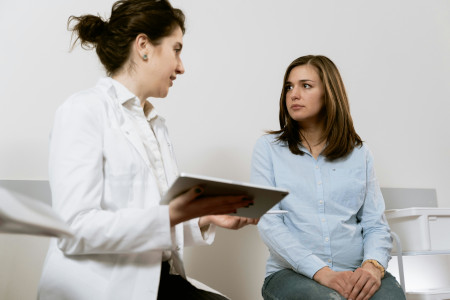
Pelvic Floor Dysfunction
Pelvic floor dysfunction refers to a range of issues that occur when the pelvic floor muscles do not function properly.
Imagine waking up to an unexpected and embarrassing situation that you thought you left behind in childhood. For many adults experiencing enuresis, or involuntary urination during sleep, this scenario is a daily reality. While society often associates bedwetting with children, enuresis in adults is more common than you might think and can have profound effects on a person’s emotional and physical well-being.
So, what causes this condition in adults, and more importantly, how can it be managed? In this article, we’ll explore what enuresis in adults is, its potential causes, the treatments available, and strategies to help you take control of your nights and your confidence.
Adult enuresis is the involuntary leakage of urine during sleep. Unlike occasional nighttime urination, this condition occurs persistently and often requires medical evaluation.
There are two main types:
For adults, enuresis can be a distressing condition that affects self-esteem, relationships, and daily life.
While enuresis is more prevalent in children, studies indicate that it impacts a significant percentage of adults. It is estimated that about 1-2% of adults experience persistent bedwetting. However, this number may be higher due to underreporting caused by embarrassment or stigma surrounding the condition.
To answer the question “What causes enuresis in adults?” It’s essential to understand that a range of factors both physical and psychological can contribute to this condition.
Adult enuresis can often point to a deeper health issue. Some of the most common medical causes include:
The body produces a hormone called vasopressin, which reduces urine production at night. Low levels of this hormone can contribute to adult enuresis.
Stress, anxiety, or trauma can sometimes manifest physically, leading to enuresis. Sleep disturbances caused by mental health conditions may also exacerbate the issue.
If you are experiencing enuresis, seeking medical evaluation is crucial to determine the underlying cause. Diagnosis typically involves:
Treatment for enuresis in adults depends largely on the underlying cause. Below are some evidence-based approaches:
Simple adjustments to daily routines can have a significant impact on managing enuresis.
These techniques can help retrain the bladder and improve nighttime control:
Several medications are available to treat enuresis in adults:
It’s important to consult a healthcare provider before starting any medication to ensure it’s suitable for your specific condition.
In some cases, medical devices can assist in managing enuresis:
For enuresis linked to medical conditions such as diabetes or sleep apnea, treating the primary condition can often resolve bedwetting symptoms.
In addition to medical treatments, there are practical steps adults can take to manage their condition and minimize its impact on daily life.
Using waterproof mattress protectors and absorbent bed pads can help reduce the stress of accidents.
Track what and when you drink. Reducing fluids close to bedtime can help control nighttime urination.
Empty your bladder at regular intervals during the day and before bedtime to reduce the risk of accidents.
Living with enuresis can feel isolating, but talking to loved ones or joining support groups can provide relief and reassurance.
Beyond the physical inconvenience, enuresis in adults can lead to:
Acknowledging these challenges is vital, as it can empower individuals to seek appropriate help and not let the condition define them.
What are the Myths and Misconceptions About Adult Enuresis?
Misunderstandings about enuresis can lead to unnecessary stigma. Let’s dispel a few common myths:
When exploring treatment, it’s important to weigh the benefits and limitations of each approach. For example:
Being informed about these options helps in making the best decision for individual needs.
Taking a holistic approach to managing enuresis in adults can improve outcomes. Combining medical treatments with lifestyle changes often yields the best results. It’s equally important to address any psychological stressors that may contribute to the condition.
While enuresis doesn’t always require advanced medical interventions, products like pelvic floor stimulators can play a supportive role in managing bladder health. Devices such as Elitone are designed to strengthen the pelvic floor muscles, which may help with bladder control in some individuals.Explore how our devices can help here.
Enuresis in adults is a medical condition that deserves attention, understanding, and effective treatment. While it may feel isolating, remember that you’re not alone, and there are many resources available to help you manage and overcome this challenge.
Taking the first step toward understanding and addressing your condition can pave the way for better health and improved well-being.
References: